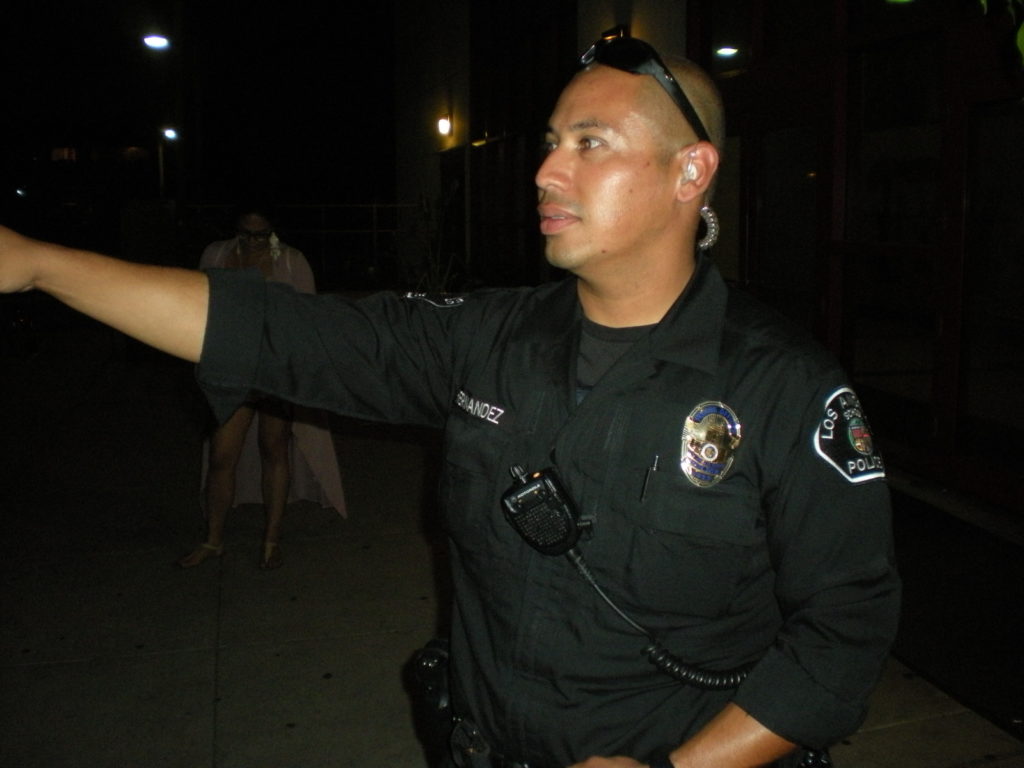UNITED STATES—”Why do you have plastic bags?” the young sheriff asked. “Poop bags for the dog.”
The young buzz-cut sheriff bid Archer to sit on the corner of the bumper. It was odd how a corner of a front patrol truck bumper could be fashioned into a nice little seat, while the park benches in the city were now ribbed by armrests that made it impossible to lie across the benches and sleep. If left to his own devices, it took Archer time. He would look at the armrests as impediment to people wanting to sit together and be close; these new park benches were no good for holding hands and making out.
“If this kind of bench has reached the small town, by the time I get there,” he thought, “we are in trouble.”
Meanwhile, the guy who had never introduced himself as a sheriff, when he rapped on the window, his putty face scored in sharp flashlight, now spoke on a radio. He had taken Archer’s license and was spelling out the first name to headquarters.
Archer was confident sure, but he had seen the movies about the wrong man wrongly accused, yes, arrest could happen, and yet, he was smugly sure that the truth would bear him out. He was even a bit surprised that he so unapologetically mentioned the wine and beer drunk in Santa Barbara. It was a special occasion; that was hours ago, and Archer had nothing to hide.
He pondered the manuscript. Now that it was done, the town would exist fully. To Archer it seemed that he had remedied a fundamental error in creation to have it and its people transmuted into fiction. There had been so many vacation mornings at the old house and his father was alive, when it was still dark and, during many years, he feared turning into that Canadian news reporter he had read about once, who every August dove back to a historical novel about Louis XV, known to colleagues and doomed to never see the light of final creation. So many moments, now that it was done. The breakfast in Memphis when she came down the stairs in a button-down oxford shirt. Girls look special in a man’s dress, and she was his girl. Then there was the long final frenetic push this summer, when everything seemed held at bay (bills, jury duty, allergies), as Archer’s book approached fruition.
Decades it had been, that feeling of doggedness and doom struck facilitating. More than half the people who had inspired him to write about them were dead, and the town had changed. It was a place that no longer was…
The young sheriff got the clear on Archer. He had him do a new sobriety test. He was told to stand up, close his eyes, and tilt his head backward. Then he was to count to 30 inside his head and then speak up when he reached 0. Released, he went gratefully back to his car and dog.
“Get safely to your Mom’s,” said the young sheriff.
“Sorry if I looked suspicious,” said Archer.
“Listen, we all look a little suspicious at 3 a.m.,” said the young sheriff.
Archer found the inside of his suitcase all wet, the dog had peed on his manuscript.
Graydon Miller is the author of “Later Bloomer: Tales from Darkest Hollywood” (on Amazon).






